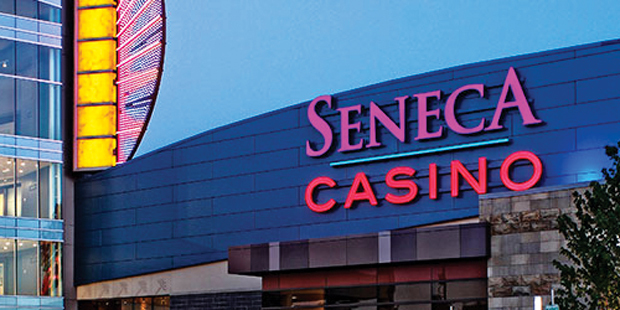






Does New York Now Need Online Poker? Tribe To Stop $110M Payments After New Casino OpeningsState, Native American Tribe At Odds Over Gambling Compact |
|
|

Could the state of New York be poised for internet poker?
New York lawmakers several years ago approved a plan to allow four new Las Vegas-style commercial casinos in upstate regions in order to keep an estimated $1 billion in gambling dollars from flowing into nearby states. Three of the four have opened within the last four months, with the final one scheduled to open early next year.
However, the state’s tribal casino industry, which is regulated by the federal government, reportedly isn’t too thrilled with the competition. On Wednesday, the Seneca Nation of Indians, which operates three casinos in western New York, said that it won’t continue paying $110 million a year in revenue sharing to Albany, according to a report from Buffalo News.
The report said that the Senecas are particularly concerned about the Del Lago Resort and Casino in Seneca County that opened last month. That casino, the closest of its kind to the tribe’s facilities, is about 100 miles east of Buffalo.
 The tribe’s New York casinos are the Seneca Niagara Casino, Seneca Buffalo Creek Casino and Seneca Allegheny Casino.
The tribe’s New York casinos are the Seneca Niagara Casino, Seneca Buffalo Creek Casino and Seneca Allegheny Casino.
The gaming compact between the tribe and New York dates back to 2002. It expires in six years, but the Senecas contend that the revenue sharing can end now. The state disagrees. Since 2002, the tribe has paid about $1.5 billion to Albany.
The compact granted the tribe casino gambling exclusivity in the region. The Del Lago casino is less than a two-hour drive from the tribe’s Buffalo casino.
According to the report, the Senecas aren’t stopping payments explicitly because of the casino competition. The tribe says the language of the compact was written in such a way that it allows them to put an end to the revenue sharing after 14 years.
This isn’t the first time the Senecas and state officials have argued over the compact.
The tribe and the state had a dispute in 2013 over the new commercial casinos, but that was sorted out in part thanks to Gov. Andrew Cuomo threatening to allow a casino just 20 miles northwest of Buffalo.
The state’s tribal gaming industry didn’t attempt to thwart the commercial casino referendum.
Implications for internet poker?
If the tribe is able to stop paying $110 million to the state, lawmakers could be more motivated to approve online poker legislation currently on the table.
New York has an estimated year-one online poker market of $120 million. The proposed tax rate in the legislation, which cleared a committee vote last month, is 15 percent.
Assemblyman J. Gary Pretlow, Chairman of the Committee on Racing and Wagering, said in a February interview that the state’s commercial casinos are onboard with web poker.
“I didn’t want to put competition in there before they even opened their doors," he said. "All four casinos have said they don’t have a problem with the state offering online poker—and the seven racinos are also eligible to be in partnership with organizations that handle online poker.”
New York officials are currently working on drafting the 2017-18 state budget.
